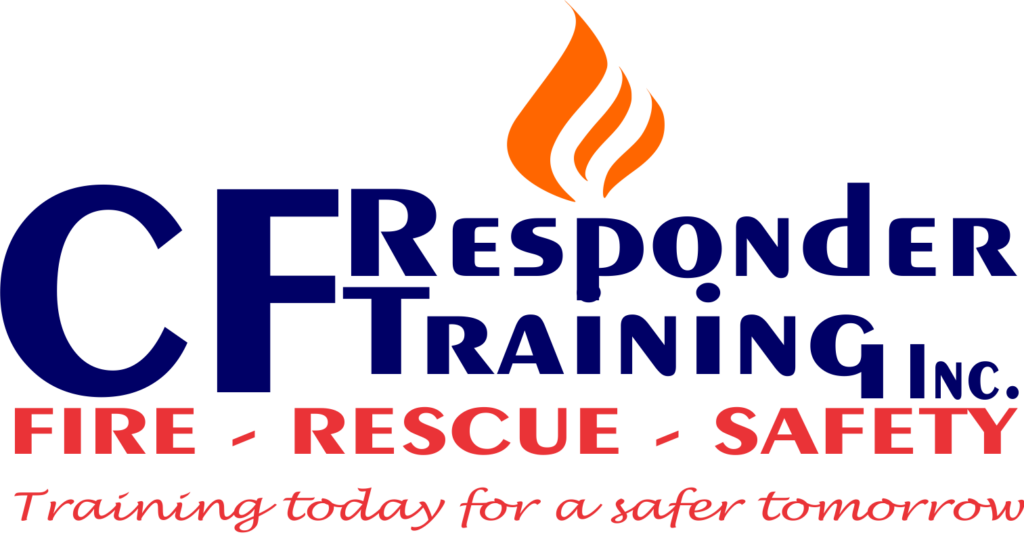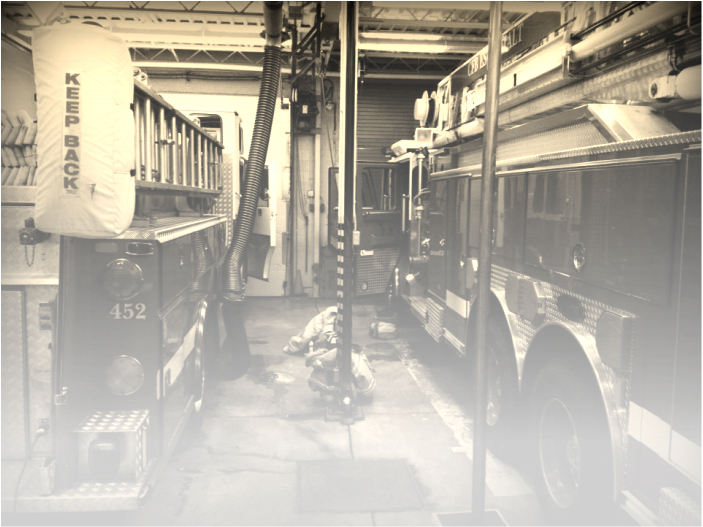
09/12/2015

Not only have I been active for 22 years, but I was a “firehall brat”, a second generation firefighter who has been kicking tires and washing trucks since I was 4 years old. That is a long time to spend around an organization and become familiar with, even entrenched in, it’s traditions. As the Deputy Fire Chief I had the privilege to work with a Chief who had 25 years in the Department, was also a graduate of our Junior Firefighter Program and someone who I respected, admired and looked up to. Over my years in the Department I always found myself one step behind him, learning from him, working together with him in various roles and forming a great understanding of how our personal strengths and weaknesses complimented each other. We were able to work together flawlessly.
When the Chief announced his plans to step down from the position after serving six years as Chief, I knew that it was time for me to make a decision about my own ambitions in the department. I was the logical choice to run for the Chief’s position after spending six years as Deputy. I was familiar with the day to day operations, I had (at least I think I had) the respect of the crew, I had the experience in a command role, I was deeply engaged in the politics of the department and worked very closely with the District Trustees. I felt confident that I could fill the role and carry on the operations of the department in the direction we had been going for a number of years and continue to improve the department and its members.
The other side of the decision is one that comes with a Volunteer Fire Department. The question or concern about “Who” will take the role of Deputy if I am successfully elected by my peers to fill the Chief’s position (Yes, we still elect our Officers). This is not so much a question of ability of those working around me, but more so a question of commitment of those working around me. Would my new office roommate be able to contribute as much as my previous one? Would that individual bring the skill sets required to fill both operational and administrative roles? Would I inherit an abundance of additional work load in order to compensate for my new partners lack of available time or inexperience in the particular areas required to fill the front office? A million questions circled around in my head and at the end of the day I had to be sure that taking on a role in the volunteer department was not going to have an adverse effect on my family, my day job or my other commitments. As the Deputy I was already contributing 10-15 hours a week to my volunteer role and I could not wrap my head around how I could take on additional responsibilities and find an extra 5-10 hours a week. This led to the question “If I can’t fulfill the role 100%, is it fair to allow my name to run in the election at all?”
All this led to a very difficult decision to step aside from the leadership role altogether. I did not run for Fire Chief, I did not run for Deputy Chief and I did not run for a Company Officer position. I had consciously made the choice to turn in my White helmet for a Yellow one and officially return to the tailgate (well the jump seat on today’s apparatus). Operationally this was not intimidating to me as my day job is a career firefighter and my side job is a fire service instructor with an independent company. I am confident in my skills and abilities to perform the hands on tasks required of me. The biggest fear for me was being accepted back on the floor as a regular firefighter, adjusting to being part of the crew and working side by side with those whom I had supervised for so many years.
Well the transition was OK, but not flawless. Now attending Training Sessions being led by those I had recently supervised, or in some cases even hired. I am all about nurturing others and allowing them to grow and develop, but it also comes with some bumps in the road and as a “Yellow Hat” I had to bite my tongue…. A LOT! I have always been passionate about training and development and through my contract instructing I am constantly learning about the latest research and tactics in our business. Unfortunately not all volunteer firefighters or officers are as passionate or committed to keeping up with the constantly changing business we are in. Nothing bothers me more than a 10 or 15 year firefighter teaching strategies and tactics and procedures they learned as a probationary. But this was my first test, to adapt to the system I had ultimately created. I had to let those lead who were chosen to lead, I had to let some of them learn from their experiences, and I had to learn to respect my new location in the Chain of Command.
Another early lesson I learned on the floor was that things change! I know, I already mentioned I am an advocate for change and progress, but it’s different when you’re caught with the deer in the headlights look as a Jr. Lieutenant asks you to locate a piece of equipment in one of the compartments on the front line Engine and you realize you have no idea where it is! Yes, I had learned that in my role as Deputy, and previously as a Captain (or Company Officer) I had lost touch with the basics, the exact thing we drill our probationary firefighters on until they know it inside and out. It had been nearly 10 years since I had conducted a “hands on” truck check myself and I was as rusty as a ’78 Ford pickup. I quickly gained a lot of respect for the firefighters who had served under me all these years. These guys knew their rig, knew their equipment and knew how to use it. They had constantly lived up to a phrase I liked to use lightly throughout my leadership stint…. “Guys, go do that stuff you do and make me look good!”
It was at this moment I truly appreciated that a leader is only as good as those who choose to follow them. We had been fortunate to have a great group of dedicated firefighters who chose to follow us. Now it was my turn to show the new leadership the respect they deserved and follow them. Easier said than done for sure. The Jr. Officers still respected my years of service and experience and were open to input and guidance in a way that made me feel appreciated, like all my years of hard work, training and commitment actually counted for something. I was accepting the fact that I was a “Yellow Hat” riding the jump seat and was happy that I felt I still had a place to contribute to the development and future of our department.
The next issue that came to me was the obligations we ask (or asked) of our Volunteers. Training, Emergency Calls, Stand-by’s, Duty Rotations, Weekly Equipment Checks, Hall Clean Up, Public Education and PR Events, Charity Events etc…. I gained a different perspective on these things from the ground level. I realized that keeping with the status quo may have been asking too much of today’s realistic expectations on a volunteer. I should clarify at this point that our department is a true Volunteer department and not a paid on call, not compensated in anyway financially for their time and contributions. The twenty plus year guys contributed on all levels because it was always something they had done, but the new generation of volunteers are busier than ever with longer work weeks, shared parenting, overly busy kids activity schedules etc… and then we expect them to commit time to all the additional roles and responsibilities of the volunteer fire department above and beyond training and emergency calls.
Another thing I noticed after a couple months of doing truck checks is that there are two realities in the fire service. 1 – We LOVE new toys and 2 – We are hoarders. What do I mean by this you ask? Well our apparatus compartments are the same size they were when we first put the truck into service, but somehow over the years we have managed to fit twice as much stuff in them. We are constantly sourcing out the latest piece of equipment, the newest gadget, and the tools that make our job safer and more efficient. This is great and I am all about improvements, but as we add equipment to our apparatus we never seem to remove something else. I went through our front line engine and identified 5 specific items on the truck and thought to myself do any of our firefighter with less than 5 years even know what these things are? So I put together a list and asked the following questions:
What is it?
What is its primary function / purpose?
Can you properly demonstrate its use?
Have you ever used it during training or an emergency?
Why is it on the truck?
Is there any other equipment / item we have that serves the same function / purpose?
A majority of the items I identified these members could at least tell me what it was and what it’s function was, but also could not properly demonstrate its use because they had never used it before and therefore could not tell me why it was on the truck. It was also identified that most of these items received a Yes to question 6, meaning there was another piece of equipment on the truck that served the same or similar purpose (or that particular piece wasn’t compatible or applicable to today’s operations). So I once again was finding myself asking why this is on the truck. Simply because it always HAS been on the truck and nobody is going to remove it until someone tells them to.
This transition has had its challenges and I am not going to say it’s been flawless, but it has been interesting. The things I have learned, seen, refreshed and discovered since stepping down have been valuable. If I am ever in a position to lead the Department again down the road, I will certainly have a fresh outlook on some things that I need to be more in touch with and some things that could use some attention. It is difficult for any Chief Officer to be intimately familiar with every aspect of the department and that’s why you hopefully have a dedicated and competent group of Officers to help you look after things. However, I feel now that a Chief Officer must make an effort to connect with his department on every level. It is one thing to be a strong leader, be approachable and have an open door policy, but I have found out first hand that there are a lot of issues on the ground level than never make it to your Office and the only way to know about them is by getting out and having a presence on the floor, making more time to be hands on and maintain those basic familiarities that we often let slip away because we get overwhelmed with our administrative duties. Sure, this may seem easier said than done, especially in a volunteer department where our time is limited and split between so many duties and responsibilities, but I think it earns a lot of respect from those you work with and will ultimately make you a stronger and more engaged leader.